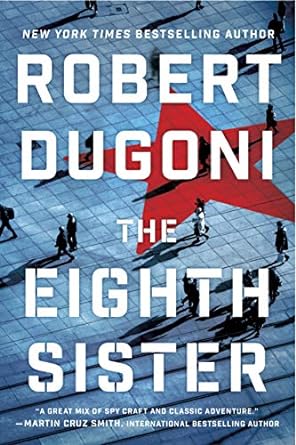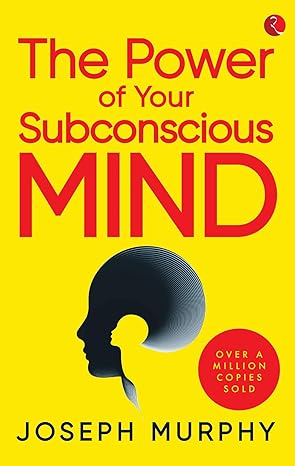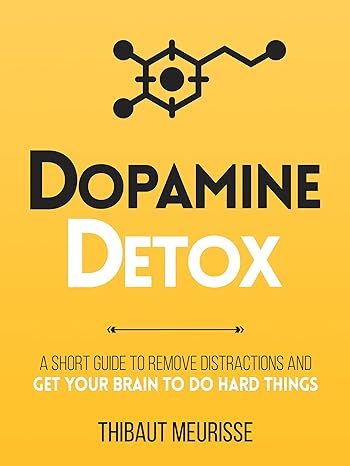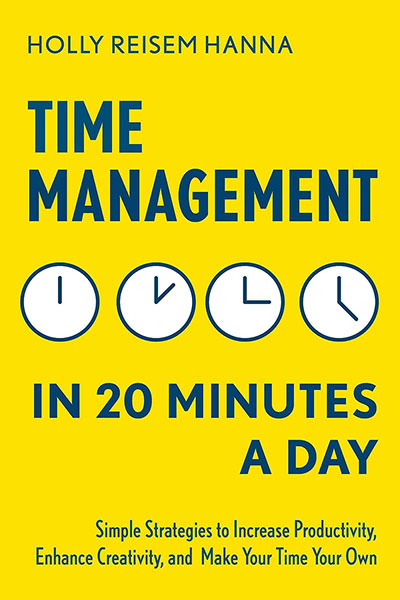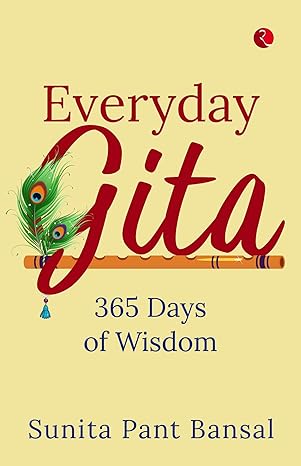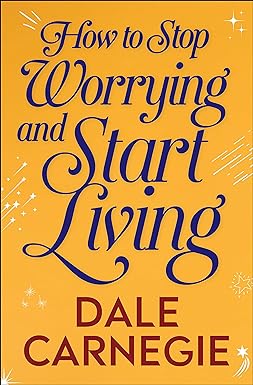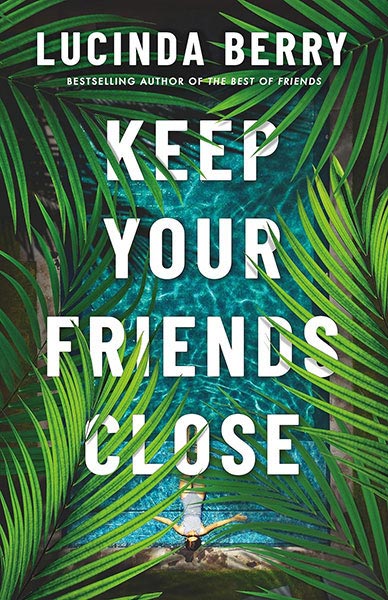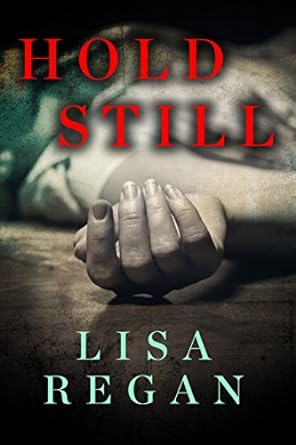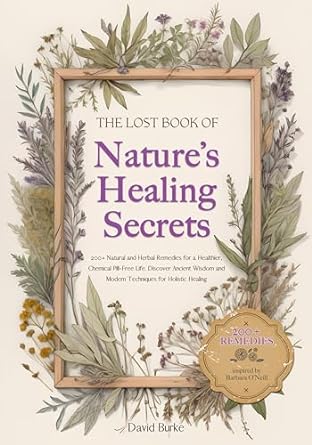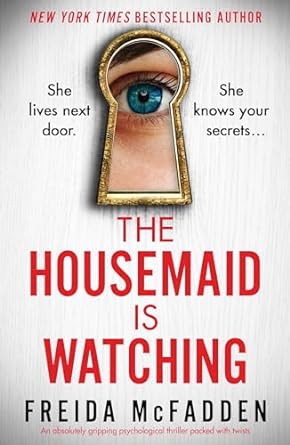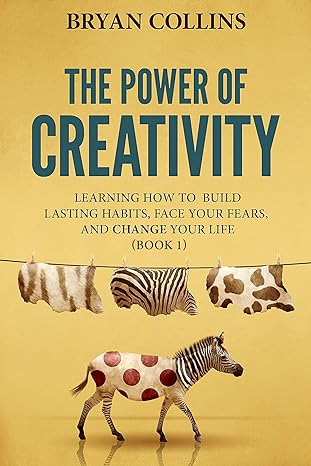
The Power of Creativity (Book 1)
Are you ready to build habits, face your fears and change your life?
Because that’s the Power of Creativity.
This book is for new writers, musicians, filmmakers, artists and anyone who has ever asked questions like “How can I become more creative?” or, “How can I get more ideas?” or “How can I focus on my thoughts and just let them flow?”
If you’ve ever struggled with a problem or challenge in your personal or professional life and thought, “I can’t do this, I’m not creative enough”, this book will help you.
BEST DEALS
About the Author
Bryan Collins is a nonfiction author, the editor of Become a Writer Today and a columnist for Forbes.
At becomeawritertoday.com, Bryan offers new writers practical advice about writing, creativity, productivity and more. His work has also appeared on Fast Company, Lifehacker and Copyblogger.
He is also passionate about helping people accomplish more at work, and when he’s not writing, he’s weight-lifting or running.
You can reach him at bryancollins.com and via email at bryan@bryancollins.com.
Read Sample
CHAPTER 1 : THE MIRROR
"We don't see things as they are, we see them as we are." —Anais Nin
OCTOBER 17TH, 2009
It was the morning after my thirtieth birthday party, and I was lying on the cold tiles in the upstairs bathroom of my house. My skin felt sticky to touch, and I imagined a shard of glassware was tearing my head in two.
I got up, put my hands on the sink, looked in the mirror and into my bloodshot eyes. I didn't like what I saw.
I could (almost) forgive myself for having a crippling hangover the morning after my birthday. I knew my life had some trappings of success: a healthy son and daughter, a wife, a paying job and a modest-sized house.
But I knew I was a failure.
However, since I was a five-year-old boy reading a tattered copy of Roald Dahl's The BFG underneath the bedcovers with a flashlight between my teeth, I wanted to be a writer. But to want something and to be brave enough to pursue it are two different things. I'd spent 25 years being too afraid to pursue what I wanted.
For years, I read books about getting more done, coming up with ideas, unlocking fresh thinking, changing habits, writing, and managing To Do lists, calendars and even time itself, but I was the ultimate procrastinator.
I collected other people's big ideas like they were rare coins that belonged in a glass case at the back of my mind. I never put what I found into practise. I was too afraid to start, too afraid to go after what I wanted, too afraid to think big.
Sure, some of my decisions opened doors for me. I talked about Ernest Hemingway and Anaïs Nin over pints of beer with friends, and I studied journalism in college (a suitable course for any would-be writer). I even talked my way into a job as a print journalist for a Dublin newspaper.
There, I was paid to report on news stories each week. I was terrible at it. I dreaded the weekly news meetings, and I couldn't stand being in the same room as the editor of the newspaper. I was permanently devoid of ideas to write or report on, and everybody at the paper knew it.
I didn't last long at that job or the next job in the media.
I left journalism and drifted into another career that had nothing to do with writing, a career that snuffed out any sparks of creativity from its employees with mind-numbing routines, policies and procedures.
I became afraid of taking creative chances because I was worried about paying the bills and of what others would think. I became caught up in the day-to-day practicalities of life.
So the morning after my birthday, I looked in the mirror at my receding hairline and the first flecks of grey in my beard. I saw I was no closer to becoming a writer than the five-year-old boy who stayed up at night reading a frayed, yellow copy of The BFG. I realised I needed to face my fears. I was a zebra who needed to change his stripes.
I needed to at least start, and I could do it with small, incremental changes. I'd work on becoming physically and mentally healthier. I'd seek out new ideas and put them into practise. I'd get over feeling afraid of rejection and failure, and I'd learn the demands of my craft.
The Road Ahead
To be creative is to embark on a long journey. I can't promise where you'll end up, but I know where we'll start. In this book, I'll explain why keeping an orderly and quiet life will help you prepare for fantastic and wild ideas.
I'll also guide you through setting up your studio or where you work for success, the difference between efficiency and effectiveness and how to feed your subconscious.
You'll discover why knowing your guiding purpose is just as important as feeling inspired about your creative projects. You'll learn how a mentor can help you face your fears and overcome everyday obstacles. And you'll find out what to do if you can't find one.
I cannot think of anything more powerful for writers, musicians or artists than a daily creative habit. So, I'll guide you through which ones to cultivate and what to ignore.
I'll explain why strengthening your mind and body and working hard is key to fresh thinking. But what if you're feeling exhausted?
Well, you can always turn to one of your side projects like television director, producer and writer Matthew Weiner, which I'll explain later.
Finally, we'll go to war. We're going to conquer any fears you have about creativity or your craft and then move boldly forward. In each chapter, I'll draw on scientific studies (because we can all benefit from a little science), and I'll also examine the lives of contemporary and past creative masters from the arts, business, technology and more.
Each chapter concludes with applicable exercises or "Creative Takeaways" that will help you overcome common setbacks in your work.
(Because, hey, theory is nice, but practise is better.)
Who this book is for
It's the first in a three-part series about creativity, which I wrote for new writers, musicians, filmmakers, and artists.
This book, in particular, is for anyone who has ever thought "I have a hard time being creative" or "I would like to discover my passion" or even "the prospects of my work being rejected is terrifying".
If you're an artist adrift, I wrote this book for you.
I'm not all sunshine, rainbows and lollipops, so if you're looking for a shortcut to a six-figure paycheque or a glittering review in the New Yorker, get out now.
I'd love a shortcut as much as the next person, you will find none here. You're still going to have to do the hard work. As I've learned firsthand, when your eyes are bloodshot, your fingers callused and your back aching, you're still on the hook for working on your ideas, for stepping forwards.
Oh, and here's the thing:
When I read books that tackle subjects like creativity, I'm struck by how distant the writer is from his or her research, and how dry the material reads.
It's as if a SERIOUS topic like creativity warrants objective distance and emotional detachment. Yet, reader loses when an author's detachment results in dry prose devoid of storytelling and steeped in research and critical analysis.
Regardless of whether the material between the covers is worth the slog, those books are just not much fun to read.
I don't want you to lose.
So you'll find my story, my fears, my struggles, my wins and my setbacks woven through these pages. I've put as much of myself and as many illuminating stories about habit-building, conquering your fears and nurturing your creativity into this book as possible.
But, you've been waiting long enough.
So, let's begin.
CHAPTER 2 : PREPARE TO BE INSPIRED
"I think people who create and write, it actually does flow-just flows from into their head, into their hand, and they write it down. It's simple." —Paul McCartney
I DREAM of standing on the Cliffs of Moher, edging towards the Atlantic Ocean, the wind snapping at my skin. I dream of being surrounded by friends and family and then falling until I'm overwhelmed by the raging sea.
I dream of a restaurant lit by candles, of medium-rare filet steak, dark red Bordeaux and marijuana. I dream of eating with friends from college and us realising we have nothing to share anymore.
I dream of returning to my old job as a care worker in a hospital, being pulled aside by my ageing manager her curly brown hair now straight and grey and being told, "You don't know how to do this anymore Bryan, you're fired."
I dream of producing a radio show for a would-be politician and then being let go. I dream about falling forwards and of reinvention.
I dream of lying in bed next to a warm body and telling her my problems. I dream of her hands moving across the dark, of being touched and being unable to touch. I dream of standing at the top of a church putting a ring on her finger. I dream of marriage and divorce, of regret and of yesterday.
I dream of a sunny October morning, the day of the Dublin City Marathon and of being unable to find the start line. I dream of putting one foot in front of the other even though my muscles are on fire; I dream of running on until I reach the finish line.
I dream of wearing a new grey suit, of tall glass buildings in the city, of shaking my new boss's hand and starting again. I dream of six-figure paydays, of sham and drudgery, and financial ruin.
I dream of melting clocks, war, fog and smoke, steel tipped helmets and marching black leather boots, my bloody face in the dirt. I dream of holding the line. I dream of a cold Christmas morning. I wake up covered in sweat.
I've got an idea.
An Artist's Slumber
In 2008, a British radio presenter asked Paul McCartney (b. 1942) to name his favourite Beatles song. McCartney answered that he loves "Yesterday", which he recorded in 1965.
One of mine? If I had to answer one song, it would have to be 'Yesterday' because it came to me in a dream and because 3,000 people are supposed to have recorded it.
That was entirely magical I have no idea how I wrote that. I just woke up one morning and it was in my head. I didn't believe it for about two weeks."
Oh to sit around on the couch or lie in bed, waiting for a divine moment of inspiration to strike. Then to rush downstairs, open a notebook and bash out 10,000 words of great prose that sets the world on fire or, as in McCartney's case, scratch out a hit record that becomes the most covered song of all time.
McCartney isn't the first creative master to turn towards dreams for inspiration.
Spanish surrealist painter Salvador Dali (1904-1989) he of the narrow, upright moustache slept as deeply and as soundly as possible before working on his big ideas.
Dali depended on "physical and psychic calm" that a deep, restful night's sleep brought before approaching the white, virgin canvas and beginning a new pictorial work.
He even went as far as to influence his dreams by having a valet pour fragrances on his pillow before waking, having melodies play quietly in the background as he slept and applying intense light to his pupils so he could dream in colours. In his book, 50 Secrets of Magic Craftsmanship, Dali wrote to aspiring painters:
...in undertaking an important pictorial work which you are anxious to bring to a successful completion and on which your heart is particularly set, you must before anything else begin it by sleeping as deeply, as soundly as possible for you to do."
After a deep night's sleep, Dali worked each morning for several hours on his surrealist paintings of melting pocket watches, distorted faces, landscapes and dream sequences.
When afternoon came, Dali returned to his subconscious mind for inspiration. He sat in a bony Spanish armchair near his painting supplies, tilted his head back and draped his hands over the arms of the chair.
In his left hand, Dali held a large heavy key, which he dangled over a plate on the floor.
Dali explained,
And the most characteristic slumber, the one most appropriate to the exercise of the art of painting... is the slumber which I call 'the slumber with a key,...you must resolve the problem of 'sleeping without sleeping,' which is the essence of the dialectics of the dream, since it is a repose which walks in equilibrium on the taut and invisible wire which separates sleeping from waking."
At first glance, stories like these give the illusion of the creative process being quick and easy and altogether alien from the grind and monotony of daily hard work.
Look more closely at these moments of inspiration, and you'll discover idling about or waiting until an idea arrives is not how masterpieces get made.
Creative masters like McCartney and Dali are able to recognise inspiration and then act on it only because they've spent hours turning up and doing the work beforehand.
They've fertilised the soil and seeded their ideas long in advance. Such masters are intimately familiar with the tools of their craft, and they've spent time shaping fragile concepts of big ideas.
In an interview with Paste Magazine, McCartney said,
[Songs] definitely just arrive out of thin air, but I think you have to know how to spot them. I think someone building a car suddenly knows when the design is right or when the engine sounds good. After a while you get used to that, and you say, 'Yeah, this is the way you go."
McCartney doesn't just wait for ideas for hit songs to appear out of thin air. He also gets ideas for song hooks by constantly considering how others compose and then by developing his idea to spot those hooks in the wild.
As far as hooks are concerned, I must say I just love them. I love them on other people's records. I love it. You find yourself whistling it or wake up thinking, 'What's that? Oh, I love that. What is it?' The best scenario is when you realize it's one of yours. 'Oh, it's the one I'm writing currently' That's the right sign. But I tell you what, it beats working."
In Dali's book referenced above, he provides new artists with a schedule they must follow.
If you're wrestling with an idea for a masterpiece, he recommends turning up before the virgin canvas each morning at eight o'clock and working for at least five and a half hours, six days a week until your masterpiece is complete.
I give you an hour for lunch, half an hour as the maximum which the wake of your 'slumber with a key' should last. I authorise half an hour for love you see that I am making generous allowances for everything."
Dali continues:
I guarantee you that if with the five and a half hours that I give you to fill in the landscape or sea you do not have enough...you are not the great painter of genius that you claim to be and your work will not be the masterpiece we expected from your brush."
For McCartney and Dali, the creative process is as much about preparation and good habits as it is about moments of inspiration.
Creative masters keep a schedule, they treat their work seriously, and get to it whether they're inspired or not. You too can cultivate creative habits that change your life, and here's how.
Copyright: Bryan Collins

